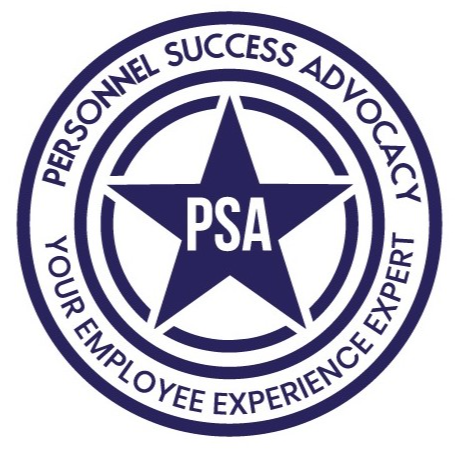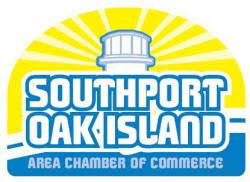Over the last half-century, the field of Human Resources (HR) has undergone a remarkable transformation. What once primarily involved administrative tasks like payroll and record-keeping has evolved into a strategic, multifaceted function that plays a pivotal role in organizational success. This blog explores the journey of HR over the past 50 years, highlighting its transformation from a traditional administrative role to a strategic partner in businesses of all sizes. Additionally, we’ll discuss how Personnel Success Advocacy can serve as a strategic partnership for small businesses, helping them navigate growth processes and comply with legal requirements.
In the 1970s, HR was largely synonymous with personnel management. HR departments were responsible for basic administrative functions such as payroll, benefits, and administration. The focus was on maintaining compliance with labor laws and ensuring that employees received their due entitlements. Companies saw HR as a cost center rather than a strategic asset.
In the 1980s, a significant shift occurred with the emergence of HR as a separate department within organizations. This move signaled a growing recognition of the need to manage human capital strategically. Companies started to invest more in training and development, recognizing that a skilled and motivated workforce could provide a competitive edge.
The 1990s brought technology-driven changes, with the advent of HR management software. This innovation made administrative tasks more efficient, enabling HR professionals to spend more time on strategic initiatives. Still, HR was often seen as a support function rather than a partner in shaping business strategies.
The 21st century marked a pivotal moment for HR. The dot-com boom and subsequent bust highlighted the importance of recruiting and retaining top talent. Companies began to understand that their people were their most valuable assets, and the role of HR evolved accordingly.
During the 2000s, HR started to focus more on strategic initiatives like talent acquisition, performance management, and workforce planning. The concept of “human capital management” gained prominence, emphasizing the strategic management of the workforce to achieve business goals. HR leaders became key partners in crafting organizational strategies.
Additionally, HR began to adopt data-driven approaches. The rise of HR analytics allowed organizations to make more informed decisions about their workforce. This data-driven approach extended to areas like employee engagement, diversity and inclusion, and succession planning.
While large corporations had the resources to invest in HR transformation, small businesses often struggled to keep up. They face unique challenges, including limited budgets and the need to wear multiple hats. Compliance with constantly changing labor laws and regulations became increasingly complex.
Personnel Success Advocacy (PSA) is not just about traditional HR services; it’s about forming a strategic partnership tailored to the specific needs of small businesses. Here’s how PSA can alleviate stress and collaborate on growth processes while ensuring legal compliance:
Customized Support: PSA providers understand that small businesses have unique needs. They offer customized solutions that align with a company’s growth goals and workforce requirements. Whether it’s talent acquisition, training, or compliance, PSA adapts to the business’s individual needs.
PSA is a strategic partnership designed to alleviate some of the stress associated with HR functions in small businesses. It involves collaborating on growth processes, offering expert consultation on legal requirements, and providing ongoing support to ensure that the organization’s workforce is aligned with its goals. PSA professionals act as trusted advisors, helping small businesses navigate HR challenges effectively and efficiently.
By partnering with PSA experts, small businesses can:
• Mitigate Legal Risks: Staying compliant with employment laws and regulations can be daunting for small businesses. PSA professionals can provide guidance on legal requirements and help businesses avoid costly legal issues.
• Enhance Workforce Efficiency: PSA experts can streamline HR processes, from recruitment and onboarding to performance management and employee development. This improves overall workforce efficiency and productivity.
• Strategic Workforce Planning: Small businesses can benefit from strategic workforce planning to ensure they have the right talent in place to support their growth objectives. PSA professionals can assist in identifying talent gaps and implementing strategies to fill them.
• Employee Engagement: Engaged employees are more likely to contribute to the success of the organization. PSA can offer guidance on creating a positive workplace culture that fosters employee engagement and satisfaction.
• Cost Savings: Outsourcing HR functions through PSA can often be more cost-effective for small businesses compared to maintaining an in-house HR department.
The evolution of HR over the past 50 years is a testament to its growing significance in the business world. From a traditional administrative function, HR has emerged as a strategic partner, playing a pivotal role in shaping organizational success. For small businesses, Personnel Success Advocacy offers a lifeline, providing the expertise and support needed to navigate the complexities of HR in today’s rapidly changing business landscape. By collaborating with PSA providers, small businesses can alleviate stress, drive growth, and ensure they meet legal requirements while focusing on what they do best: running their businesses.






